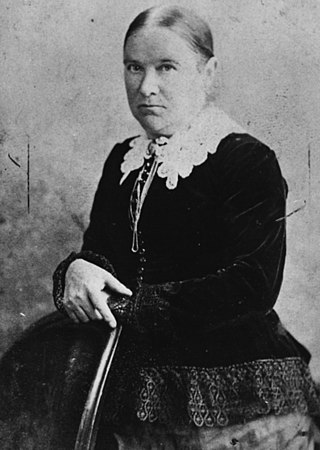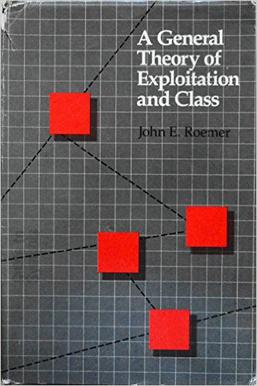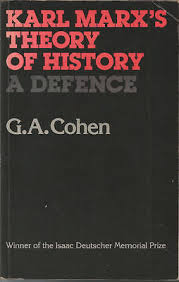
Karl Mannheim was an influential Hungarian sociologist during the first half of the 20th century. He is a key figure in classical sociology, as well as one of the founders of the sociology of knowledge. Mannheim is best known for his book Ideology and Utopia (1929/1936), in which he distinguishes between partial and total ideologies, the latter representing comprehensive worldviews distinctive to particular social groups, and also between ideologies that provide outdated support for existing social arrangements, and utopias, which look to the future and threaten to transform a society.

Conflict theories are perspectives in sociology and social psychology that emphasize a materialist interpretation of history, dialectical method of analysis, a critical stance toward existing social arrangements, and political program of revolution or, at least, reform. Conflict theories draw attention to power differentials, such as class conflict, and generally contrast historically dominant ideologies. It is therefore a macro-level analysis of society.

Bhikhu Chotalal Parekh, Baron Parekh, is a British political theorist, academic, and life peer. He is a Labour Party member of the House of Lords. He was Professor of Political Theory at the University of Hull from 1982 to 2001, and Professor of Political Philosophy at the University of Westminster from 2001 to 2009. He served as president of the Academy of Social Sciences from 2003 to 2008.
Marxism is a method of socioeconomic analysis that uses a materialist interpretation of historical development, better known as historical materialism, to understand class relations and social conflict and a dialectical perspective to view social transformation. It originates from the works of 19th-century German philosophers Karl Marx and Friedrich Engels. As Marxism has developed over time into various branches and schools of thought, no single, definitive Marxist theory exists. Marxism has had a profound impact in shaping the modern world, with various left-wing to far-left political movements taking inspiration from it in varying local contexts.
Terrell Foster Carver is a Professor of Political Theory at the University of Bristol.

Helene Demuth was a German housekeeper who worked for Jenny and Karl Marx, and later served as the household manager and political confidante of Friedrich Engels.

Marx and Human Nature: Refutation of a Legend is a 1983 book by the political theorist Norman Geras, in which the author discusses the philosopher Karl Marx's theory of human nature with reference to Marx's Sixth Thesis on Feuerbach. Geras argues that Marx did not deny the existence of a universal human nature, and maintains that the concept of human nature is compatible with historical materialism.

Making Sense of Marx is a 1985 book about Karl Marx by the social and political theorist Jon Elster, in which the author reevaluates Marx's ideas. The book has received a mixture of praise and criticism from commentators.

A General Theory of Exploitation and Class is a 1982 book about the exploitation of labour and social class by the economist and political scientist John Roemer. The book was first published in the United States by Harvard University Press.

Marxism and the Oppression of Women: Toward a Unitary Theory is a book by the sociologist Lise Vogel that is considered an important contribution to Marxist Feminism. Vogel surveys Karl Marx and Friedrich Engels's comments on the causes of women's oppression, examines how socialist movements in Europe and in the United States have addressed women's oppression, and argues that women's oppression should be understood in terms of women's role in social reproduction and in particular in reproducing labor power.

Marxism and Morality is a 1985 book about Marxist ethics by the political and social theorist Steven Lukes. The book was praised by commentators, who credited Lukes with showing the paradoxes inherent within Marxist approaches to morality. It has been called a classic introduction.

Analyzing Marx: Morality, Power and History is a 1984 book about the philosopher Karl Marx by the political philosopher Richard W. Miller.

Marxism: An Historical and Critical Study is a book by the socialist intellectual George Lichtheim, in which the author provides a study of the development of Marxism from its origins to 1917. It has been seen as a classic work.

Karl Marx: His Life and Thought is a 1973 biography of Karl Marx by the political scientist David McLellan. The work was republished as Karl Marx: A Biography in 1995.

Karl Marx's Theory of History: A Defence is a 1978 book by the philosopher G. A. Cohen, the culmination of his attempts to reformulate Karl Marx's doctrines of alienation, exploitation, and historical materialism. Cohen, who interprets Marxism as a scientific theory of history, applies the techniques of analytic philosophy to the elucidation and defence of Marx's materialist conception of history.
In Marxism, class consciousness is the set of beliefs that a person holds regarding their social class or economic rank in society, the structure of their class, and their class interests. According to Karl Marx, it is an awareness that is key to sparking a revolution that would "create a dictatorship of the proletariat, transforming it from a wage-earning, property-less mass into the ruling class".
Analytical Marxism is an academic school of Marxist theory which emerged in the late 1970s, largely prompted by G. A. Cohen's Karl Marx's Theory of History: A Defence (1978). In this book, Cohen drew on the Anglo–American tradition of analytic philosophy in an attempt to raise the standards of clarity and rigor within Marxist theory, which led to his distancing of Marxism from continental European philosophy. Analytical Marxism rejects much of the Hegelian and dialectical tradition associated with Marx's thought.

Marxism was introduced by Karl Marx. Most Marxist critics who were writing in what could chronologically be specified as the early period of Marxist literary criticism, subscribed to what has come to be called "vulgar Marxism." In this thinking of the structure of societies, literary texts are one register of the superstructure, which is determined by the economic base of any given society. Therefore, literary texts are a reflection of the economic base rather than "the social institutions from which they originate" for all social institutions, or more precisely human–social relationships, are in the final analysis determined by the economic base.

The German Ideology, also known as A Critique of the German Ideology, is a set of manuscripts written by Karl Marx and Friedrich Engels around April or early May 1846. Marx and Engels did not find a publisher, but the work was retrieved and first published in 1932 by Soviet Union's Marx–Engels–Lenin Institute. The book uses satirical polemics to critique modern German philosophy, particularly that of young Hegelians such as Marx's former mentor Bruno Bauer, Ludwig Feuerbach, and Max Stirner's The Ego and Its Own. It criticizes "ideology" as a form of "historical idealism", as opposed to Marx's historical materialism. The first part of Volume I also examines the division of labor and Marx's theory of human nature, on which he states that humans "distinguish themselves from animals as soon as they begin to produce their means of subsistence".
In Marxist theory, false consciousness is a term describing the ways in which material, ideological, and institutional processes are said to mislead members of the proletariat and other class actors within capitalist societies, concealing the exploitation and inequality intrinsic to the social relations between classes. According to Marxists, false consciousness legitimizes the existence of different social classes.














